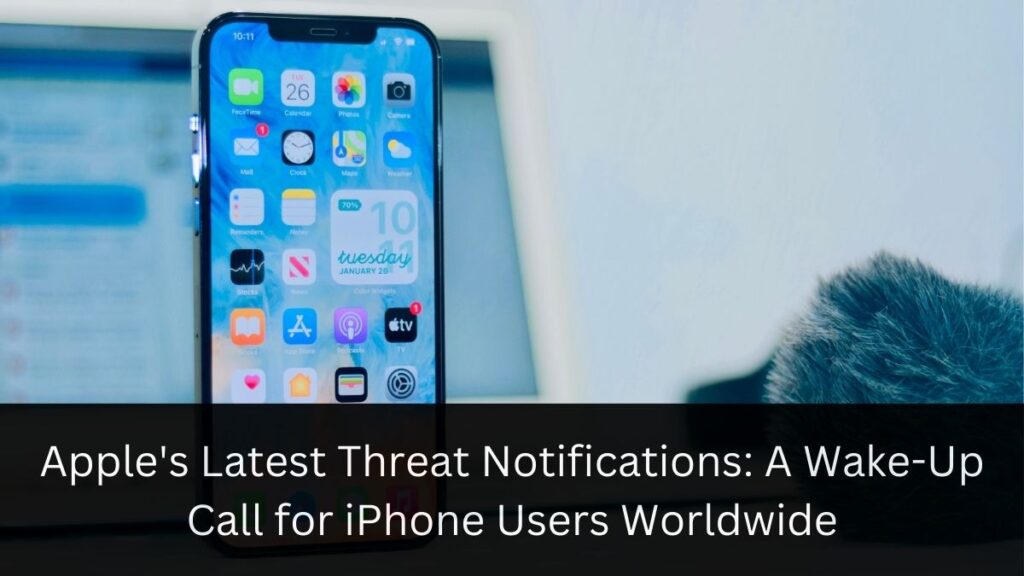In an era where digital privacy is increasingly under siege, Apple has once again sounded the alarm. The tech giant’s recent issuance of threat notifications to iPhone users across 98 countries serves as a stark reminder of the ongoing battle against sophisticated cyber threats. This article delves into the implications of these warnings, the evolving landscape of digital security, and what it means for the average smartphone user.
The Scope of the Threat
A Global Concern
Apple’s latest round of notifications spans an impressive 98 countries, highlighting the truly global nature of cyber threats. This widespread alert follows a similar campaign in April, which targeted users in 92 nations. The sheer scale of these notifications underscores the pervasive nature of digital vulnerabilities in our interconnected world.
Mercenary Spyware: A New Terminology
Interestingly, Apple has shifted its language, now referring to these incidents as “mercenary spyware attacks” rather than “state-sponsored” attacks. This subtle change in terminology hints at the complex web of actors involved in these sophisticated cyber operations.
The Nature of the Threat
Targeted Attacks
Apple’s warning to affected customers is chillingly specific: “This attack is likely targeting you specifically because of who you are or what you do.” This personalized approach to cyber threats is a far cry from the broad-spectrum attacks of yesteryear. It suggests a level of sophistication and resources that go beyond ordinary cybercriminal activities.
High-Stakes Game
The gravity of the situation is further emphasized by Apple’s statement: “Although it’s never possible to achieve absolute certainty when detecting such attacks, Apple has high confidence in this warning — please take it seriously.” When a tech behemoth like Apple expresses such concern, it’s a clear indication of the serious nature of these threats.
The Indian Connection
A Hotbed of Activity
India has emerged as a notable hotspot in this global cyber conflict. Several journalists and politicians in the country received similar warnings from Apple in October. This pattern of targeting influential figures raises questions about the motivations behind these attacks and their potential impact on democratic processes.
The Pegasus Connection
The involvement of Pegasus, a highly invasive spyware developed by the Israeli firm NSO Group, adds another layer of complexity to the situation. Amnesty International’s discovery of Pegasus on the iPhones of prominent Indian journalists highlights the sophisticated tools at play in this digital battleground.
Apple’s Approach to Threat Detection
A Delicate Balance
Apple finds itself walking a tightrope between transparency and security. While the company aims to warn users of potential threats, it must also safeguard its detection methods. As Apple stated, revealing too much information could potentially aid attackers in evading future detection.
In-House Intelligence
It’s worth noting that Apple relies solely on “internal threat-intelligence information and investigations to detect such attacks.” This approach underscores the company’s commitment to user privacy, as it avoids relying on external data sources that might compromise user information.
The Broader Implications
A New Normal?
As these threat notifications become more frequent, we must ask ourselves: Is this the new normal for digital life? The regularity of these warnings – Apple has been sending them since 2021, reaching users in over 150 countries – suggests that we may be entering an era of persistent digital vigilance.
The Privacy Paradox
This situation highlights the ongoing tension between the convenience of digital technology and the need for privacy and security. As our lives become increasingly intertwined with our devices, the stakes for protecting our digital selves have never been higher.
What Can Users Do?
Stay Informed
The first line of defense is awareness. Users should stay informed about potential threats and take warnings from tech companies seriously.
Keep Software Updated
Regularly updating your device’s software is crucial. These updates often include critical security patches that can protect against known vulnerabilities.
Be Cautious Online
Practicing good digital hygiene – such as avoiding suspicious links and downloads – can go a long way in protecting your device from potential threats.
Consider Additional Security Measures
For those who may be at higher risk, considering additional security measures like using a VPN or encrypted messaging apps might be worthwhile.
As we navigate this complex digital landscape, it’s clear that the battle for online privacy and security is far from over. The evolving nature of cyber threats requires constant vigilance from both tech companies and users alike.
Apple’s proactive approach in warning users is commendable, but it also serves as a reminder of the vulnerabilities inherent in our digital lives. As users, we must take an active role in protecting our digital selves, staying informed, and advocating for stronger privacy protections.
In conclusion, while the digital age has brought unprecedented convenience and connectivity, it has also ushered in new and sophisticated threats to our privacy and security. Apple’s latest warning is not just a notification – it’s a call to action for all of us to take our digital security seriously. As we move forward, the balance between technological advancement and personal privacy will undoubtedly remain a critical issue for individuals, corporations, and societies as a whole.

